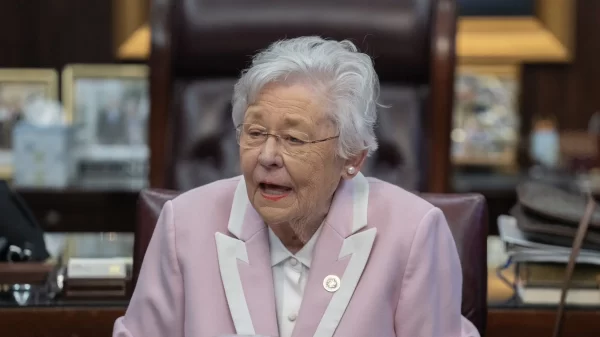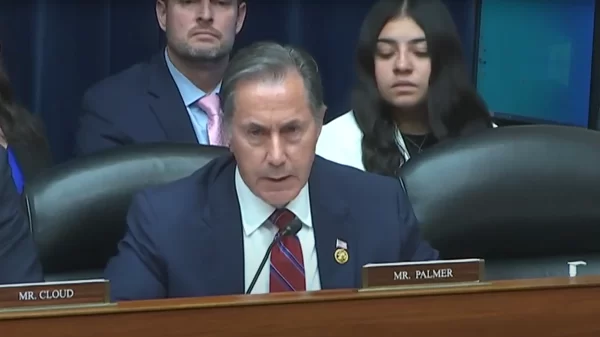By Chip Brownlee
Alabama Political Reporter
MONTGOMERY — The first bill Gov. Kay Ivey signed after becoming Governor Monday evening was a bill that will put an end to Judicial Override in capital punishment. The bill will now become law.
Ivey signed her first act, Senate Bill 16, sponsored by Sen. Dick Brewbaker in the Senate and Rep. Chris England, in her office Tuesday. When the act becomes law, a judge will no longer be able to override a jury to impose the death penalty in capital murder cases.
The major change to Alabama’s death penalty sentencing system puts the Yellowhammer State in line with all other states that allow capital punishment.
The Alabama House of Representatives overwhelmingly passed the bill last week that will formally give juries the final say on whether a defendant receives the death penalty.
The House passed the bill 78-19 in what turned out to be a short, non-controversial vote. Few spoke up against the bill and most of the debate consisted of amending England’s House bill, which would have required a unanimous jury verdict, to match Brewbaker’s Senate bill, which required only 10 out of 12 jurors to vote for the death penalty. Brewbaker’s version was the one that passed.
England said last week that he thought the change was long overdue.
“It actually undermines our system, as the Constitution guarantees your right to a jury and a trial by your peers,” England said. “So, we should reinforce to that jury that your decision is final.”
The US Supreme Court in January refused to hear a challenge to Alabama’s system of judicial override from several death row inmates, including 74-year-old convict Thomas Arthur, who — after another Supreme Court decision last month — will be scheduled for his eight execution.
Arthur escaped seven previous execution dates unscathed because of several appeals.
Even with Alabama’s legal victories, the State’s system remained the only “hybrid sentencing system” in the country. Juries give a nonbinding advisory sentence — either for death or for life — and the judge then makes the final determination. This was one factor that perhaps insulated Alabama’s system from Supreme Court review.
In Arthur’s case, his trial jury voted 11-1 for an advisory verdict of death, but the vote wasn’t unanimous, as most other states’ death penalty sentences require. Under the bill passed by Ivey Tuesday, Arthur would have still gotten the death penalty.
The Southern Poverty Law Center, a legal organization that has been a strong critic of Alabama’s death penalty system, said the passage of the judicial override bill last week was a victory. For them, it was about ensuring no innocent person is ever put to death, they said.
“Alabama should do everything it can to ensure that an innocent person is never executed,” said Ebony Howard, SPLC’s associate legal director. “The bipartisan effort to pass a bill that would keep a judge from overriding a jury’s vote in capital cases is a step in the right direction. As of today, Alabama is one step closer to joining every other state in our nation in prohibiting Judicial Override in the sentencing phase of death penalty cases.”
Those who have opposed Judicial Override, including England, have said the existing law gives judges undue authority to issue harsher sentences to seem “tough on crime.” In election years, they say, judges issue the death penalty more often to appear tough to their constituents.
Since 1976, more than 92 percent of 107 overrides have resulted in a judge imposing the death penalty when a trial jury voted to recommend life in prison, according to Montgomery’s Equal Justice Initiative.
“We should all agree that if we have a death penalty then the process should be fair and accurate,” said Frank Knaack, executive director of Alabama Appleseed, another non-profit legal organization that has opposed judicial override. “SB 16 will help minimize unreliable and arbitrary death sentences and move Alabama one step closer to ending its outlier status.”
But the new law won’t have any effect on those who were previously sentenced under Alabama’s judicial override system. It is not retroactive. Anyone sentenced to death unilaterally by a judge will not have his or her sentence revoked. It will only affect future cases.
The act will go into effect within three months of Ivey’s signature.
Email Chip Brownlee at [email protected] or follow him on Twitter.




















































